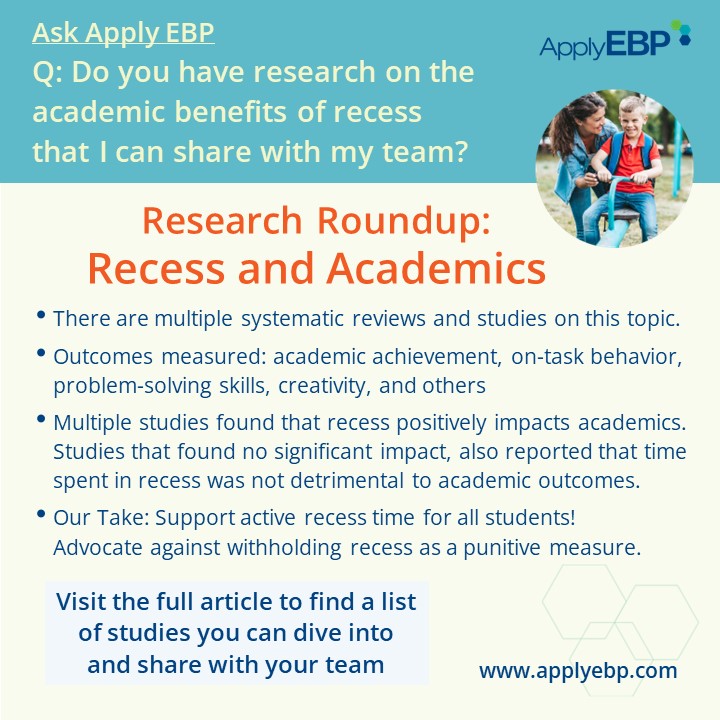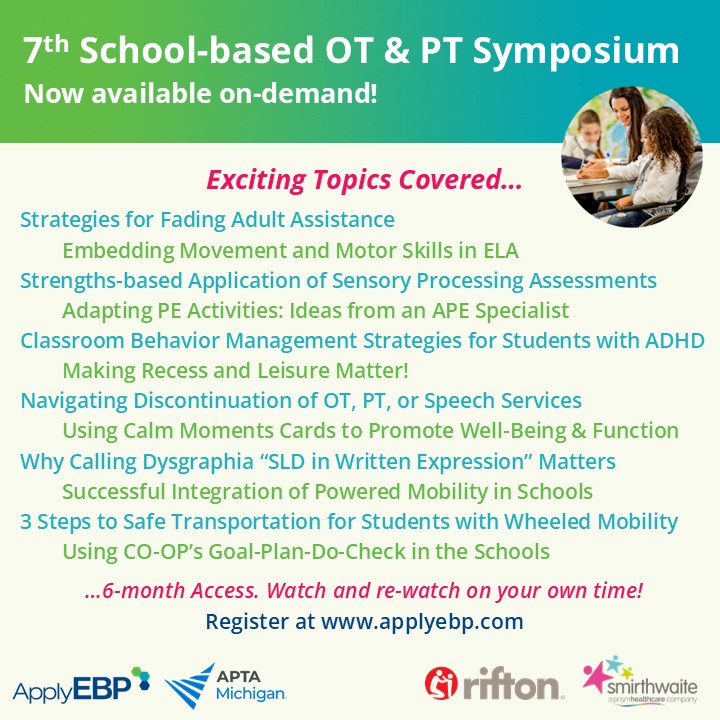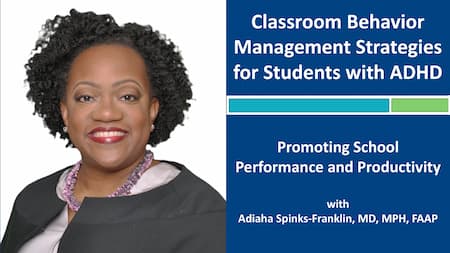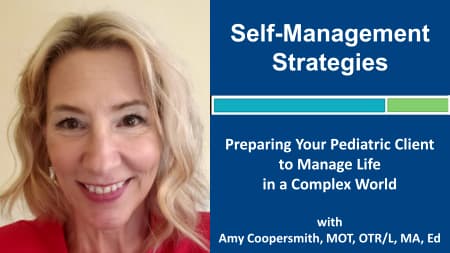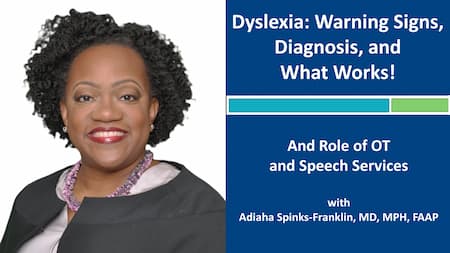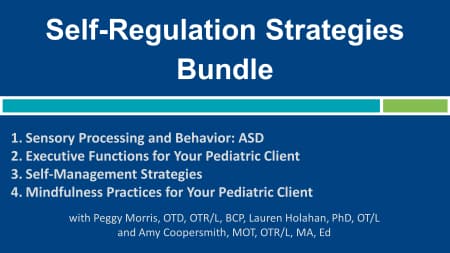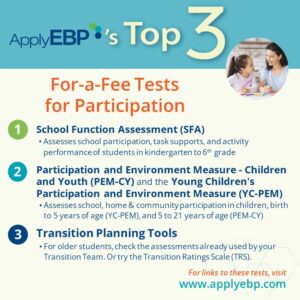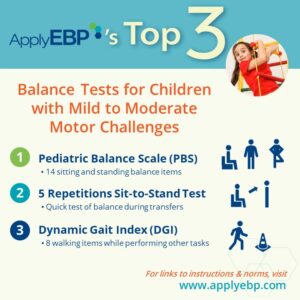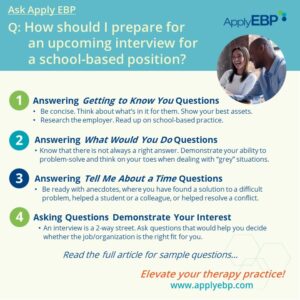Ask Apply EBP
Research Roundup: Recess and Academics
Apply EBP’s “Research Roundup” is a blog post series that serves as your go-to resource for peer-reviewed studies focusing on commonly-discussed topics relevant to OT, PT, and SLP practice. Each installment provides you a compilation of published research to inform your decision-making and to share with your team.
Q: Do you have research on the academic benefits of recess that I can share with my team?
In this edition of Ask Apply EBP, we present an array of research studies on the impact of recess on academic performance and achievement. While we provide a concise summary of the overall findings in our Big Picture summary, we encourage you to delve into the individual articles that pique your interest for a deeper understanding.
We’ve organized the studies into two categories: Systematic Reviews (SRs), followed by other non-SR studies published since 2010 (note that there are more studies published before this date, many of which are already included in the systematic reviews). We provide key excerpts or insights from each study. All the studies we reference are sourced from peer-reviewed journals and are arranged from the most recent to the oldest.
Note that there are other research studies on academic benefits of physical activity, say in physical education or other opportunities besides recess. We did not include those in this compilation. Be on the lookout for those in future editions of Research Roundup .
Want a PDF Document version of this list that you can easily share with your team via print or email? Join Apply EBP’s Facebook Discussion Group by clicking here to download one.
We are committed to maintaining the relevance of this resource. If you have additional peer-reviewed research to contribute, please email it to applyebp@gmail.com with the subject “For Research Roundup” and the topic (e.g., For Research Roundup: Recess and Academics).
Thank you for your participation!
The Big Picture
-
-
- There are multiple systematic reviews and other research studies on the impact of recess!
- Outcomes measured: academic achievement, on-task behavior, problem-solving skills, creativity, and others
- Results: In general, studies found that recess impacts academics positively. Studies that reported no significant impact of recess, also found that time spent in recess was not detrimental to academic outcomes. Quality of activities during recess may also be an important factor.
- Our take: Support active recess time for students. Advocate against the withholding of recess as a punitive measure.
- Visit the free CDC resources on recess that you can share with your team.
-
Systematic Reviews
Howie, E. K., Perryman, K. L., Moretta, J., & Cameron, L. (2023). Educational outcomes of recess in elementary school children: A mixed-methods systematic review. Plos one, 18(11), e0294340.
-
-
- “Qualitative studies reported multiple benefits of recess including increased focus, improved problem solving and academic achievement.”
-
Hodges, V. C., Centeio, E. E., & Morgan, C. F. (2022). The benefits of school recess: A systematic review. Journal of School Health, 92(10), 959-967.
-
-
- “Recess provided school-aged children academic and cognitive benefits, behavioral and emotional benefits, physical benefits, and social benefits…there was no literature implicating negative impacts of recess.””Overall, evidence suggests positive benefits for behavior and either positive or null benefits of recess on academic achievement. However, evidence is limited by non-controlled study designs and diversity in outcome assessments.”
-
Burson, S. L., & Castelli, D. M. (2022). How elementary in‐school play opportunities relate to academic achievement and social‐emotional well‐being: Systematic review. Journal of School Health, 92(10), 945-958.
-
-
- “Overall, student behavior and social-emotional outcomes benefited from more recess while mixed results were found between recess participation and academic outcomes. However, more recess was not detrimental to academic achievement. The findings from this review support the need for recess as part of a whole child approach to education that may mitigate the negative outcomes of sitting through long periods of instruction.”
-
Other Studies Published since 2015 (Non-systematic reviews)
Carriedo, A., & Cecchini, J. A. (2023). A longitudinal examination of withholding all or part of school recess on children’s physical activity and sedentary behavior: evidence from a natural experiment. Early Childhood Education Journal, 51(4), 605-614.
-
-
- “…in some territories teachers often use recess for other purposes (e.g., children’s poor classroom behavior might be punished with reduced time for recess). This study aimed to examine the impact of such practices….Academic achievement was positively associated with the METS and negatively with the sedentary behavior. Finally, withholding all or part of school recess significantly reduced children’s PA and extended their sedentary behavior…Therefore, students should not be excluded from participation in all or part of recess.”
-
Ángel Latorre-Román, P., Berrios-Aguayo, B., Aragón-Vela, J., & Pantoja-Vallejo, A. (2021). Effects of a 10-week active recess program in school setting on physical fitness, school aptitudes, creativity and cognitive flexibility in elementary school children. A randomised-controlled trial. Journal of sports sciences, 39(11), 1277-1286.
-
-
- “In conclusion, active recess based on high intensity training can be a proper tool to improve some cognitive skills, such as school aptitudes, creativity, and cognitive flexibility.”
-
Massey, W. V., Thalken, J., Szarabajko, A., Neilson, L., & Geldhof, J. (2021). Recess quality and social and behavioral health in elementary school students. Journal of School Health, 91(9), 730-740.
-
-
- “Recess quality significantly predicted executive functioning problems, resilience, emotional self-control, and a composite of adaptive classroom behaviors…Schools should ensure there is adequate training and resources to facilitate a positive and meaningful recess for students.”
-
Erwin, H., Fedewa, A., Wilson, J., & Ahn, S. (2019). The effect of doubling the amount of recess on elementary student disciplinary referrals and achievement over time. Journal of research in childhood education, 33(4), 592-609.
-
-
- “Participants were 728 K to 6th-grade students from one school in the southeastern United States who transitioned from one 15-minute recess break to two 15-minute recess breaks per school day the following year…Results show the number of discipline referrals increased with the additional daily recess, and math test scores improved.”
- A later study by the same authors (Fedewa, A. L., Erwin, H., Wilson, J., & Ahn, S. (2021). Relationship between the timing of recess breaks and discipline referrals among elementary children. Children, Youth and Environments, 31(1), 165-177.) delved into the timing of the disciplinary referrals and concluded: “Findings revealed a complex picture of the role recess timing may play in decreasing discipline issues for children. As time elapsed, the odds of discipline referral increased for verbal disruptive and truancy-related behaviors. Results support multiple recess periods throughout the day, preferably every 90 minutes.”
-
Stapp, A. C., & Karr, J. K. (2018). Effect of Recess on Fifth Grade Students’ Time On-Task in an Elementary Classroom. International Electronic Journal of Elementary Education, 10(4), 449-456.
-
-
- “Participants on- and off-task behaviors were observed and documented on a task frequency chart prior to and after recess. Findings from the study indicated that providing fifth-grade students with daily recess significantly increased on-task behaviors in the classroom.”
-
Esteban-Cornejo, I., Martinez-Gomez, D., Garcia-Cervantes, L., Ortega, F. B., Delgado-Alfonso, A., Castro-Piñero, J., & Veiga, O. L. (2017). Objectively measured physical activity during physical education and school recess and their associations with academic performance in youth: The UP&DOWN study. Journal of Physical Activity and Health, 14(4), 275-282.
-
-
- “There were no differences in academic performance between quartiles of physical activity in Physical Education and recess…Time spent at different physical activity intensities during PE and recess does not impair academic performance in youth.”
-
Brez, C., & Sheets, V. (2017). Classroom benefits of recess. Learning Environments Research, 20, 433-445.
-
-
- “Children in grades 3–5 were tested before and after recess on cognitive measures of sustained attention and creativity. We found an increase in children’s sustained attention after recess.”
-
Dills, A. K., Morgan, H. N., & Rotthoff, K. W. (2011). Recess, physical education, and elementary school student outcomes. Economics of Education Review, 30(5), 889-900.
-
-
- “We find no statistical difference in the male and female students’ response to recess and PE. Evidence suggests that recess and PE do not harm student outcomes.”
-
If you are interested in more evidence-based discussions about promoting academic success for students, join…
Or these webinars…
Find More Answers to Your Questions in Our...
Featured School
Symposium
7th Online School-based OT and PT Symposium - On-Demand Version
- Watch and re-watch on your own time
- On-Demand Version
- OTs, OTAs, PTs and PTAs
- $399-449
Featured Live
Workshop
6th Online School-based OT and PT Symposium - On-demand Version
- Watch and re-watch on your own time
- On-Demand Version
- OTs, OTAs, PTs and PTAs
- $399-449
Featured On-Demand
Webinar
Dyslexia: Warning Signs, Diagnosis, and What Works!
Featured Webinar
Bundle
Self-Regulation Strategies Bundle
Have a question?
Submit here…
*Clicking submit will send your question directly to our email inbox. Your name and email will let us know that your submission is real (not spam). We will not include these in our posts, unless you tell us to include your name. Please read our privacy policy here.
All infographics and videos on www.applyebp.com are intellectual properties of Apply EBP, LLC
You may use the infographics and videos for free for any non-commercial, educational purposes. Please cite the source as “Apply EBP, LLC” and a link to the source article. If you plan to use any infographic or video for commercial purposes (i.e., for profit), please email Carlo@applyebp.com to obtain a written permission. Permission can be granted on a case-by-case basis.

